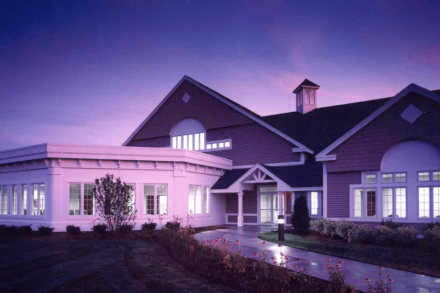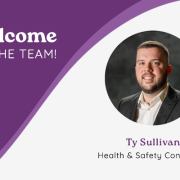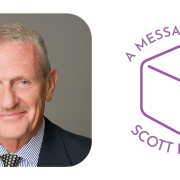
Dealing with insurance agencies can be a nightmare—long hold times, confusing policies, and plans that don’t suit what you’re looking for. The difference when dealing with The Lawson Group is that we pay attention to the issues and problems people have, and make ourselves available to remediate them as soon as they come up.
Transcription:
You know, in 1995, I like to say I knew nothing about worker’s comp insurance other than the fact that you had to have it. And that was about as much as I knew about it.
But in order to do a good job at developing a business and selling what it is that you’re doing, you’ve got to kind of be knowledgeable about what you’re doing.
When we started to investigate and see how the rest of the commercial insurance market treated the insurance world, and then you look for the voids or the lack of what they’re doing to say, “Oh, we can do that better. We have a better mousetrap, we have a better model.”
A lot of the workers comp carriers in the state of New Hampshire just do a really poor job of preventing claims in the first place.
Workers’ comp is you’re paid for based on how badly or how well you do with your worker’s comp claims. So the worse you perform, i.e., the more claims you have, the more expensive claims you have, the more you walk.
Workers’ comp insurance is going to cost you going forward, the better you perform, the less it’s going to cost you.
Find a Problem to Solve
The problem with the commercial insurance industry is they just don’t do a very good job of keeping people from getting hurt and managing claims when people do get hurt and they have a very different business model than the way we and the self-insurance marketplace in the world runs.
In the world of conventional workers’ comp, it is pretty much when somebody gets hurt, we take the claim and we. They say they manage it going forward, we like to say that they process those claims.
We take the opposite approach with my background and work on health and safety. We go in in the first place and try to prevent claims from happening by having good health and safety programs.
So we have fewer claims. The injuries are less severe with claims that are less severe. With claims that are less severe, you can manage them more appropriately and get people back to work faster then when you wait for somebody to get very severely hurt because you didn’t take any precautions to keep them from getting hurt, the claim becomes more expensive. It’s harder to manage and you’re off to the races.
There’s a thing called the loss ratio, and the loss ratio is the money that you pay out for claims divided by the premium that you collect.
If you collect a dollar and you spend a dollar to pay claims, you’re not making any money, you have 100% loss ratio. If you collect a dollar and you pay 50 cents, you’ve got a 50% loss ratio because you’re only paying half of your premium.
Typically, the self insurance groups have loss ratios of 40% or less. Typically, the commercial insurance carriers have loss ratios of 80 to 1005 or higher.
That’s a staggering statistically difference, and that’s because we spend a tremendous amount of money in lost control. It’s because we spend a tremendous amount of money to have claims adjusters who only manage 100 claims instead of two or three or four hundred claims.
The smart money says if you do things the way the self insurance market does it, you make more money because the gap between what you collect for premium, what you pay for losses is so much greater than it is doing it the way the commercial insurance industry does it. But because they’re also able to sell other lines of insurance to go along with worker’s comp in a lot of cases worker’s comp becomes their loss leader.
They actually lose money on the worker’s comp insurance that they write, but they make it up on commercial auto director’s and officer’s umbrella policies and all the rest of the stuff that they do.
It’s Not All About Scott
When we have our annual meetings, where we go to these places, where I get to send up and talk about workers comp insurance and everybody says how intelligent I am about insurance or how what a great job we do because of the things that I talk about and I always sit there and go, but it’s not. It’s not Scott. It’s not me.
We got a staff of some 40 people in 20 or 25 of them are the people that handle all of our frontline insurance business every day. They’re the ones that filled the wagon with the product. They’re the ones that deliver that high value service proposition that we’ve created or the model that we’ve created. They’re the ones that deliver it every day.
The number one compliment I get all the time is our company is so nice to deal with because, hey, we have a live person to answer the phone. All of our people are so courteous and polite on the phone, and everybody returns phone calls and gets back to people.
It’s pathetic to say that that’s the measure of most companies out there, that it’s OK to not return phone calls. It’s OK to knock it back to customers, especially when we’re being held up to the standard of the insurance companies.
People will sit there and say the biggest difference in dealing with us on the workers comp stuff that we do is they can actually get a hold of us.
And we hear horror stories from our customers when we go out and they talk to them, take a week or two or three in some cases to get a hold of the insurance company to report a very, very serious accident because they don’t get return phone calls.
And that all goes to the fact that, again, they’re not bad people. They’ve just got so many customers that they’re trying to deal with that they have to try to prioritize and troubleshoot. So often they just don’t have the time to get back to people.
Community Matters
We know we’re really different organization. We pay attention to the issues and problems people have. Over the years, we’ve had several people that have had cancer, either spouses or family members or whatever where we continue to pay them while they’re not coming to work while they’re being treated or worse when they pass.
And so we’re hypersensitive to the fact that, you know, families have issues and problems. And one of the beliefs that I have is the most important thing that everybody can do with their lives is to take good care of their family. And the job just becomes a means to an end. It pays for the mortgage, it pays for the car, the kids braces the college education.
It better be something that they enjoy. Hopefully, it’s something that they do really well and hopefully we can provide the environment within which they can enjoy it and do the job very well so that they can also be fairly compensated for it.
We bring Ben and Jerry’s in half a dozen times a year generally for somebody’s birthday or some special event. Every year we take people to Cannes to be late. Everybody’s allowed to bring family members, kids, relatives, whatever, and that’s with only 40 employees. I think last year we had almost 130 or 140 people who came to that.
Last year, we actually went to every parent who was bringing their child to the Christmas party and actually asked them what was on their Christmas list and actually got their child something that was on their Christmas list from Santa, as opposed to just buying a gift that they hadn’t asked for. So it had a lot more individual meaning to it, and the kids got a big kick out of it.
And frankly, the guy to play Santa is terrific. He’s absolutely outstanding.
So the more we feel like we can participate or get people involved in stuff that we do at the business, the more the more fun it makes it for them to come to work. It’s not just a job. They don’t commit to sit at a desk and work for eight hours and go home and come back and do the same thing the next day. And we’re always looking for stuff to do to make it interesting for them so they want to be there.
They want to be part of what we’re accomplishing.





